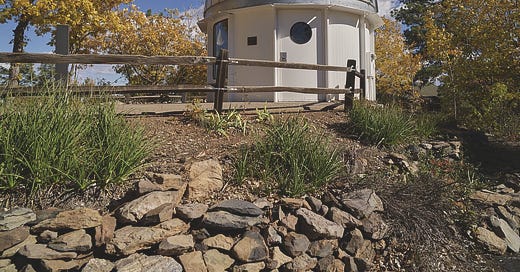How To Use Your Senses to Enhance Your Nature and Conservation Writing
And not just the five you know about...
Notes for Nature is a series about ideas, resources, and best practices for writing effectively for nature, science, and conservation.

Be Sensible
All writers hope to seduce or entice or fascinate their readers into the world we weave with our words. One way of doing so it to create a sensory world so real that readers slip seamlessly in and get lost in its depths. Here is some advice on how to use your own senses to build a world readers can’t resist.
Sense, as defined by Merriam-Webster, is “a specialized function or mechanism by which an animal receives and responds to external or internal stimuli.” Experts argue over how many senses we have, from the basic Aristotelian five to 33. But most seem to settle on eight major sensory systems. Let’s look at each and see how they can enhance your nature and conservation writing.
See For Yourself
Often considered our primary sense, the visual sensory system is responsible for your sight, including registering light, color, size, position, shape, pattern, and appearance. What do you want your reader to see? Start with what you can see (in real life or in your imagined setting) to begin developing your viewshed with basic observations and, as a painter layers on color, add more details.
For example, as I write this, I’m in a local park not far from my home, seated at a concrete picnic bench across the street from the rangers’ office. A reader can now visualize my basic surroundings. Now add more detail to make the experience more intense and more realistic.
The picnic bench is covered in chipped green paint and dirt, and I keep flicking ants off my computer. A bicyclist goes by, a young man in black shorts and white tee on a red bike, then a speeding golf cart carrying maintenance guys in t-shirts and jeans, then a woman in purple Lycra walking a pit bull on a matching purple leash. Palm trees and live oaks break up the blue sky overhead and the nearby pond—too low because we haven’t had rain in weeks—ripples under the light breeze. A white egret at one end hunts fish in the reeds. In the distance, at the big pavilion across the pond, a tractor is moving picnic tables around in preparation for the farmers’ market later today.
Keep reading with a 7-day free trial
Subscribe to Tesserae to keep reading this post and get 7 days of free access to the full post archives.





